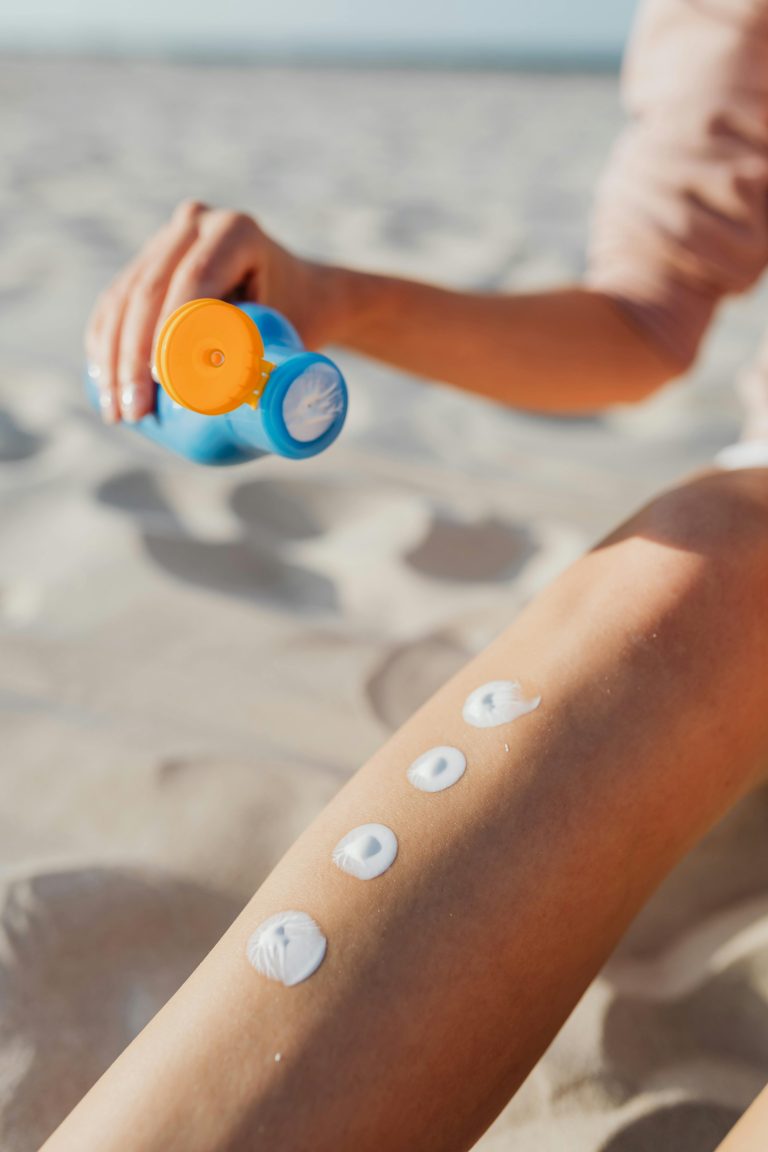Sunburn is a common skin condition that occurs when the skin is overexposed to ultraviolet (UV) radiation from the sun. While it’s important to protect your skin from the harmful effects of the sun, sometimes, even with precautions, sunburn can occur. The result is redness, swelling, pain, and in some cases, peeling skin. Fortunately, there are several quick remedies to help soothe sunburn pain, reduce inflammation, and promote healing.
What Causes Sunburn?
Sunburn happens when your skin’s outer layers are damaged by prolonged exposure to UV radiation. The UV rays penetrate the skin, causing DNA damage in skin cells. This triggers an inflammatory response, which leads to redness, pain, and swelling. Sunburn can occur in a matter of minutes of unprotected sun exposure, especially during the peak sunlight hours between 10 a.m. and 4 p.m.
While sunburn is a common and temporary condition, repeated exposure can lead to premature aging, skin discoloration, and an increased risk of skin cancer. It’s essential to take sunburn seriously and address it promptly to minimize long-term effects.
Symptoms of Sunburn
Common symptoms of sunburn include:
- Red, inflamed skin: Skin appears bright red and may feel warm to the touch.
- Pain or tenderness: The sunburned area may be sore, sensitive, or even painful, especially if touched.
- Swelling: The skin may swell in response to the injury.
- Blisters: In severe cases, blisters filled with fluid may form.
- Peeling: After a few days, the affected skin may begin to peel as it heals.
- Fever and chills: In more severe cases, sunburn may lead to a mild fever or chills, especially if there is extensive sun damage.
Quick Remedies for Sunburn Relief
If you’ve developed sunburn, it’s important to treat it promptly to reduce discomfort and promote faster healing. Here are some quick remedies you can try:
- Cool Compresses: Apply a cool, damp cloth to the sunburned area to help reduce the heat and swelling. Avoid using ice or very cold water, as this can cause further skin irritation.
- Aloe Vera: Aloe vera gel is known for its soothing and healing properties. Applying fresh aloe vera gel directly to the skin helps cool the skin, reduce inflammation, and promote healing. You can use store-bought aloe vera gel, but ensure it’s free from added fragrances and alcohol, which can irritate the skin.
- Oatmeal Baths: Soaking in an oatmeal bath can provide instant relief from sunburn pain and itching. Oatmeal contains anti-inflammatory compounds that help soothe irritated skin. Simply add colloidal oatmeal to lukewarm bath water and soak for 15-20 minutes.
- Coconut Oil: Coconut oil is known for its moisturizing and anti-inflammatory properties. Applying a small amount of coconut oil to sunburned skin can help restore moisture and prevent peeling. However, avoid applying it to broken or blistered skin.
- Hydration: Sunburn can dehydrate your body, leading to dryness and discomfort. Drink plenty of water to stay hydrated and help your skin heal. Hydration also supports the body’s natural recovery processes.
- Hydrocortisone Cream: Over-the-counter hydrocortisone cream can help reduce redness and swelling. It’s best to apply this cream sparingly and only on small areas of sunburned skin. Be cautious when using it on broken skin, as it can cause irritation.
- Cold Milk Compress: Applying a cool compress soaked in milk to the sunburned area can help relieve pain and inflammation. The proteins and fats in milk have a cooling effect that can soothe your skin. Just soak a soft cloth in cold milk, wring it out, and gently apply it to the sunburned area.
Preventing Sunburn
The best way to deal with sunburn is to prevent it from occurring in the first place. Here are some tips to protect your skin from the harmful effects of the sun:
- Apply Sunscreen: Use broad-spectrum sunscreen with a high SPF (at least 30) every two hours, especially if you’re sweating or swimming. Reapply more frequently after swimming or heavy sweating.
- Seek Shade: When the sun is at its peak, find shade whenever possible, especially between 10 a.m. and 4 p.m.
- Wear Protective Clothing: Consider wearing lightweight, long-sleeve shirts, hats, and sunglasses to protect your skin from the sun.
- Avoid Tanning Beds: Tanning beds also emit UV radiation and can contribute to sunburn and skin damage.
- Limit Sun Exposure: Try to limit your time in the sun, particularly during the hottest part of the day. Gradually increase your exposure to the sun to help your skin adjust.
When to Seek Medical Help
In most cases, sunburn will heal with proper care and treatment. However, you should seek medical attention if you experience:
- Severe blisters or large areas of blistering skin
- A high fever or chills
- Dehydration symptoms, such as dizziness, dark urine, or dry mouth
- Intense pain that doesn’t improve with over-the-counter treatments
- Sunburn affecting sensitive areas such as the face, eyes, or genitals
If you are concerned about your sunburn or notice severe symptoms, it’s best to consult with a healthcare provider to ensure proper treatment.
Managing Sunburn at Igaku
If you need help managing your sunburn or are concerned about your skin’s health, Igaku’s healthcare professionals are here to assist you. Our team can provide expert advice on skincare, help alleviate discomfort, and suggest effective treatments to reduce inflammation and promote healing.
Whether you prefer an in-person consultation or a teleconsultation through WhatsApp, Igaku offers convenient and personalized care to address your sunburn concerns. Don’t wait for your skin to heal on its own—contact us today and take the first step toward soothing relief.
Read our other articles here.
- IGAKUhttps://igaku.co/blog/author/igaku/
- IGAKUhttps://igaku.co/blog/author/igaku/
- IGAKUhttps://igaku.co/blog/author/igaku/
- IGAKUhttps://igaku.co/blog/author/igaku/


